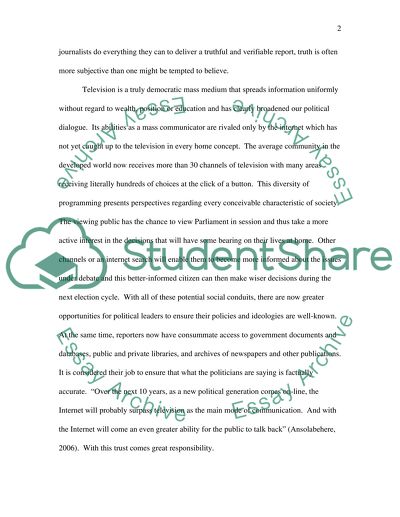Cite this document
(Mass Media: Does It Give Us the Truth Essay Example | Topics and Well Written Essays - 2250 words, n.d.)
Mass Media: Does It Give Us the Truth Essay Example | Topics and Well Written Essays - 2250 words. Retrieved from https://studentshare.org/media/1566155-mass-communications-does-the-media-give-us-the-truth
Mass Media: Does It Give Us the Truth Essay Example | Topics and Well Written Essays - 2250 words. Retrieved from https://studentshare.org/media/1566155-mass-communications-does-the-media-give-us-the-truth
(Mass Media: Does It Give Us the Truth Essay Example | Topics and Well Written Essays - 2250 Words)
Mass Media: Does It Give Us the Truth Essay Example | Topics and Well Written Essays - 2250 Words. https://studentshare.org/media/1566155-mass-communications-does-the-media-give-us-the-truth.
Mass Media: Does It Give Us the Truth Essay Example | Topics and Well Written Essays - 2250 Words. https://studentshare.org/media/1566155-mass-communications-does-the-media-give-us-the-truth.
“Mass Media: Does It Give Us the Truth Essay Example | Topics and Well Written Essays - 2250 Words”. https://studentshare.org/media/1566155-mass-communications-does-the-media-give-us-the-truth.


